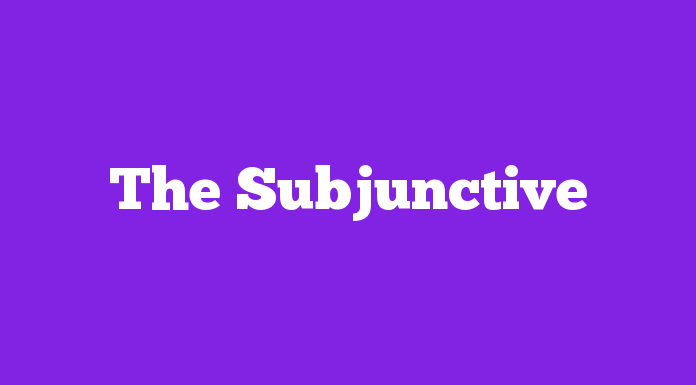Subjunctive Mood
Do you ever wonder why sometimes a verb in the past form is used in reference to present and future situations? Have you ever read a sentence where a third person singular verb has no ‘s’ and questioned your entire grammar knowledge? Well, then let’s learn about the Subjunctive mood to figure out the answer.
Subjunctive mood: Subjunctive mood is a verb form used to express a recommendation, a wish, a demand, or a hypothetical situation. It is also used to suggest that something is important.
Now let us talk about how and when the Subjunctive mood is used.
- Present Subjunctive mood:
In formal English, the verbs and expressions that are used to express suggestions, demands, or wishes use the present subjunctive mood. In American English, the present subjunctive has the same form as the base verb and is the same in both present and past situations. However, in British English, a few alterations are made in the sentence by adding the model verb ‘should’. Some of the ways are as follows.
Indicative verb + (that)
Example:
I recommend she upgrade her membership. (American English)
I recommend she should upgrade her membership. (British English)
I suggest (that) we eat now. (American English)
I suggest (that)we should eat now. (British English)
Some of the commonly used Indicative verbs are: suggest, recommend, ask, insist, demand, command, order, wish, advice, desire, urge, etc
It is + adjective
Example:
It is important that she be punctual. (American English)
It is important that she should be punctual. (British English)
Some of the commonly used Adjectives are: vital, essential, important, crucial, necessary, best, desirable, urgent, recommended, etc.
- Past Subjunctive moods:
The Past Subjunctive is used in hypothetical situations. It is also used in the ‘if’ clause of conditional 2 sentences. The Past Subjunctive has the same form as the verb in Simple Past tense. The only distinct past subjunctive form in English is ‘were’. Following are some ways it is used:
If (/as if / as though)+ Subject + were
Example:
If I were a bird, I would travel the world for free.
She looked/behaved as if/as though she were going to kill everyone
Note: In Informal English people tend to use ‘was’ instead of ‘were’ but it is recommended to use ‘were ‘just to be on a safer side.
Subject + wish/wished + Past Tense
Example:
I wish you could get over your sad past.
- Fixed expressions :
The subjunctive mood is also used in a few fixed expressions like ‘so be it’, ‘as it were’, ‘if need be’, ‘be that as it may’ etc The following are a few examples of the fixed sentences that use Subjunctive moods.
Example:
If this is how it has to be, so be it.
You were so pale you had me worried, so all I could do was get you into bed, as it were
A subjunctive mood is a verb form that we use very often in written English. Though it is not used as commonly in spoken English but is quite frequently used in formal written English. It adds structure and variety to the sentences when used. It may seem a little confusing in the beginning but practicing it regularly will help you in mastering the use.


